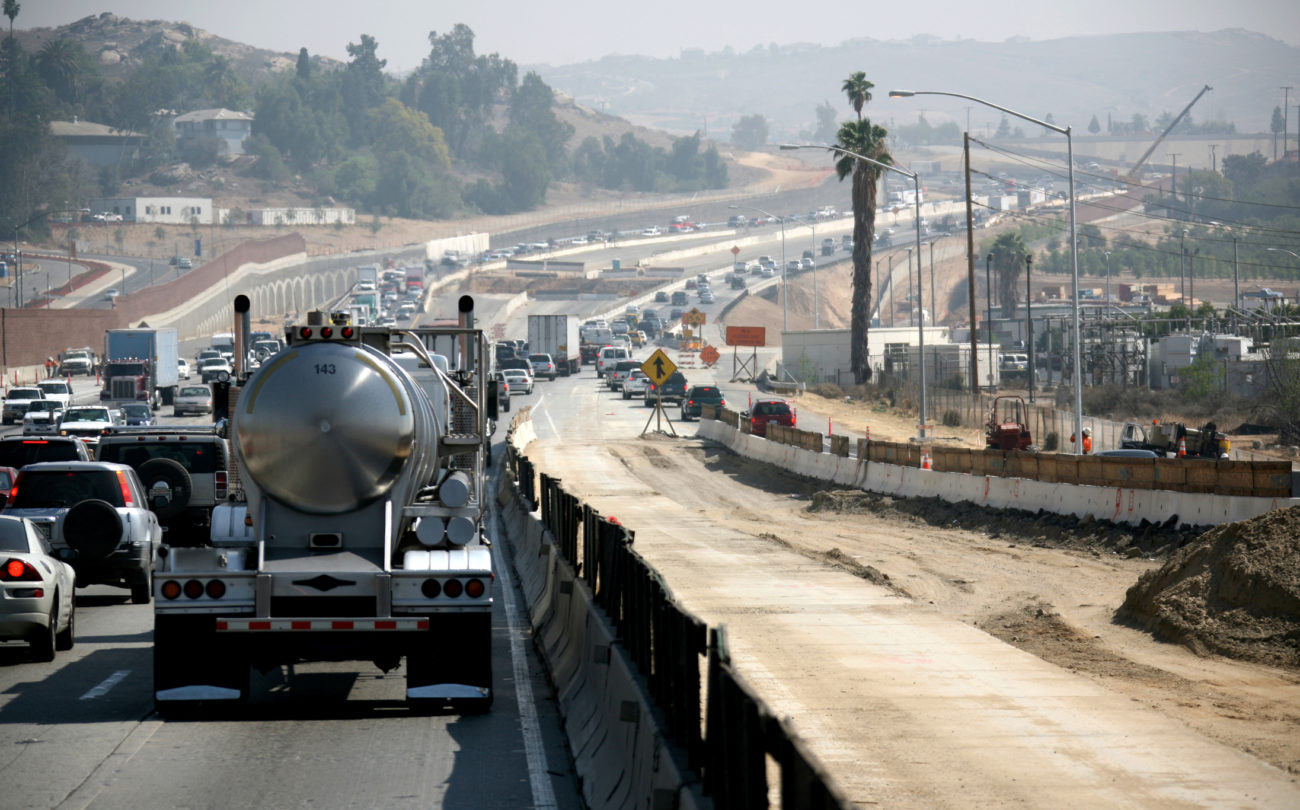
California has the opportunity to dramatically improve community health and air quality—while meeting our state’s climate change goals—by focusing on reducing pollution from transportation.
The transportation sector accounts for the largest share of our state’s greenhouse gas emissions. It is also one of the major reasons why our state is home to many of the most polluted cities in the United States. The American Lung Association just released its 20th anniversary edition of its annual State of the Air report, which has consistently found that California has a majority of the top 10 most polluted cities in the nation for ozone and particulate matter. This is due in large part to vehicle emissions.
For decades, low-income communities and communities of color have dealt with a lack of access to affordable, reliable clean transportation options, and yet at the same time, they are the ones most impacted by transportation-related pollution. These communities, where many members of the California Environmental Justice Alliance live and work, are home to major transportation hubs and highways that bring huge concentrations of vehicles and equipment, creating toxic hot spots of dirty air and serious health impacts.

Residents in the Inland Empire, Central Valley, port areas and other heavily impacted parts of our state have seen thousands of diesel trucks driving past their homes and schools each day, pumping more pollution into their lungs. At the same time, our communities do not have reliable public transit and must depend on cars to get around
The health impacts on families, children and workers are many and severe. The California Air Resources Board estimates that diesel particulate matter contributes to thousands of premature deaths each year in our state and causes about 70 percent of the overall cancer risk from breathing toxic air pollutants. High rates of asthma, developmental and reproductive harm, and missed days of work and school add to a long list of related issues that affect our health and quality of life.
Inaction has serious consequences for our families and our communities, and it also contributes to climate change. California has made some steps in the right direction, but we must do much more to improve air quality and public health where it matters most. We need policies and funding to work in tandem to ramp up the adoption of zero emission transportation technologies, while providing access to affordable, reliable public transportation and other clean mobility options in our communities.
Our state already spends billions of dollars on transportation policies and programs. These public funds should be paired with strong, ambitious mandates to get millions more zero emission cars, freight trucks and buses on the road by 2030. Rather than continuing to pour billions of dollars into status quo infrastructure, transportation planning and funding decisions must prioritize our climate, clean air and public health goals. This shift is necessary to prevent the worst impacts of climate change and protect all communities.

Right now, legislators are considering various proposals to electrify our transportation system and transform transportation planning. The California Air Resources Board, the agency charged with implementing our state’s climate policies and regulating transportation-related pollution, has already approved a rule to transition our public transit buses to zero emission technologies and is now developing a rule to transition the trucking sector.
What’s holding us back from approving and implementing these much needed policies?
Oil companies continue to line the pockets of our decision makers. The oil industry consistently spends more money on lobbying than any other industry in California. Over the past few years, the so-called “Big Oil” industry has set new records for spending on lobbying to weaken our climate and clean air policies.
We need our elected representatives in Sacramento to stand up to Big Oil and hold the industry accountable for the harms it is causing in our communities and around the world. We need lawmakers and regulators to prioritize public health, clean air and the climate over corporate interests.
It’s time for California to double down on zero emission transportation to improve our health and hold Big Oil accountable.
Gladys Limon is the executive director and Stephanie Tsai is the climate justice program associate at the California Environmental Justice Alliance.






You must be logged in to post a comment.